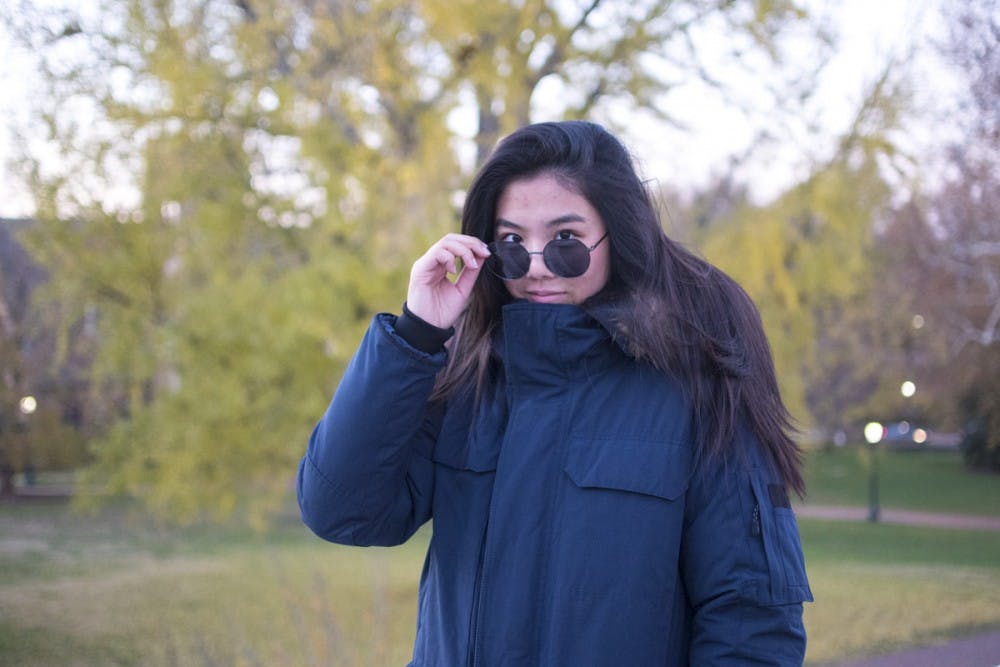I am from the city — there’s no way around the fact. As much as people from Charlottesville would love to tell you otherwise, it’s an itty-bitty little blep on a map who’s biggest “mall” is just a collective ignorance of the fact it’s just one street. I’ll admit, I had my own set of biased preconceptions before I came to Charlottesville about what life in a more rural area was going to be like. I moved to Charlottesville from Seoul, a metropolis of almost 10 million, a stark contrast to Charlottesville’s mere population of 14 (it’s actually only 12; two of them are just horses in shoes, but they’re sensitive, so don’t bring it up).
There are some things that are different — but plenty that are surprisingly the same.
In the city, public transport could take you anywhere. Have T-money, will travel. I expected the complete opposite of a rural area — perhaps a lowly but amiable tractor would pick me up from my dorm in the morning, hand me a single stalk of wheat to hold in my mouth and look pensive with, and drive me to class. I pictured myself bumbling down a dirt road with a slightly misogynistic country song in my heart about missing some girl with one of those funny Southern names that’s really two names put together.
For the most part, I’ll concede that I was wrong here. Transportation is more or less the same. In the city, I was subject to the arbitrary whims of the oh-so-fickle public transportation system. In Charlottesville, the Inner Loop drivers ignore my frantic run for their idling bus in the same way bus drivers did back in the city — it’s a little taste of home that warms my heart a little while simultaneously making me want to die.
There is one difference, though, and it’s in the way that people deal with the places that public transport can’t take you. They’re called cars, and they go anywhere. It turns out when you have a car, you don’t have to pay someone to drive you somewhere or find a bus or train that goes near there, because you can (and I didn’t know this) drive it yourself. Plus, you own them — they’re available whenever you want. There are all these big open spaces where cars can go to just sit there and wait for your whimsy to strike. In an effort to assimilate, I’ve acquired something known as a learner’s permit, allowing me (little old me!) to sit in the driver’s seat of these cars and become accustomed to the ways of this backwards, adorable culture.
Eye contact — my mortal enemy. Anyone who’s anyone has heard of Southern hospitality, which presents a sort of strange polar opposite in the city: metropolitan apathy. Rather, it’s a weird fake apathy where if you’re walking one way on a fairly quiet street and there’s someone walking towards you, you both mutually pretend to not notice each other. My best techniques included tilting my head so the brim of my baseball cap (worn for no purpose but aesthetic) blocked out their face, changing the song I was listening to even if I liked to just so I could look at my phone, or “finding” something that required my immediate attention in my pocket. I realized I had to be fully prepared to greet people — even strangers — at any given instance. That meant facing the whole package: eye contact, a quick smile, even a verbal greeting if I was feeling particularly hospitable. Wary and unenthusiastic as I was, I was forced to come to terms with the fact I had to learn to be amiable if I was ever going to make it at U.Va.
It turns out college kids are just as antisocially leaning as I am. They have what I’d call Metropolitan Apathy Lite, where there exists the mutually acknowledged fact that we’re all stressed, busy and would really like to be friendlier to each other but can’t quite muster up the spirit to do so. If city people pretend to not notice each other to serve themselves, then U.Va students can acknowledge that within cult of suffering, avoiding each other is sometimes the best for all.
(There is one exception, and it is the bus driver. Always thank the bus driver.)
When I first decided that I would be going to U.Va., I knew my immediate priority was to pick up the language. I was going to college to learn, make friends and have fun, all of which required intimate, idiomatic knowledge of the lexicon of the South. I practiced drawling my r’s, making unnecessary similes to specific and obscure farm animals and inserting racial microaggressions into my everyday speech — the whole nine yards. I was willing to lose my city slicker lingo — hey, I’m walking here! (Or, if you lived where I did, an apology under your breath while avoiding eye contact and bowing slightly.)
I’ll admit — not my best work here, either. Turns out that U.Va. isn’t as southern as its location (or its district’s congressional representation) would have you believe. My howdy’s and weird probing questions about Asian peoples’ ethnicities were as sadly misplaced as a winter pheasant hen in a two-corn half-slide bit shack. What I’ve found is a language entirely new and foreign in and of itself. Called “NoVa slang”, it consists of a series of regular words, simply put in strange new contexts and therefore taking on new meanings. I was painfully unequipped to deal with the language, and spent the next weeks in total immersion. I’m happy to report that I’ve achieved a semblance of fluency, even if it took me a brick to figure out what a sice was or how to geek. Oh joy, such an adventure it is to learn!
Gabriella Chu is a Humor Columnist for The Cavalier Daily. She can be reached at humor@cavalierdaily.com.







